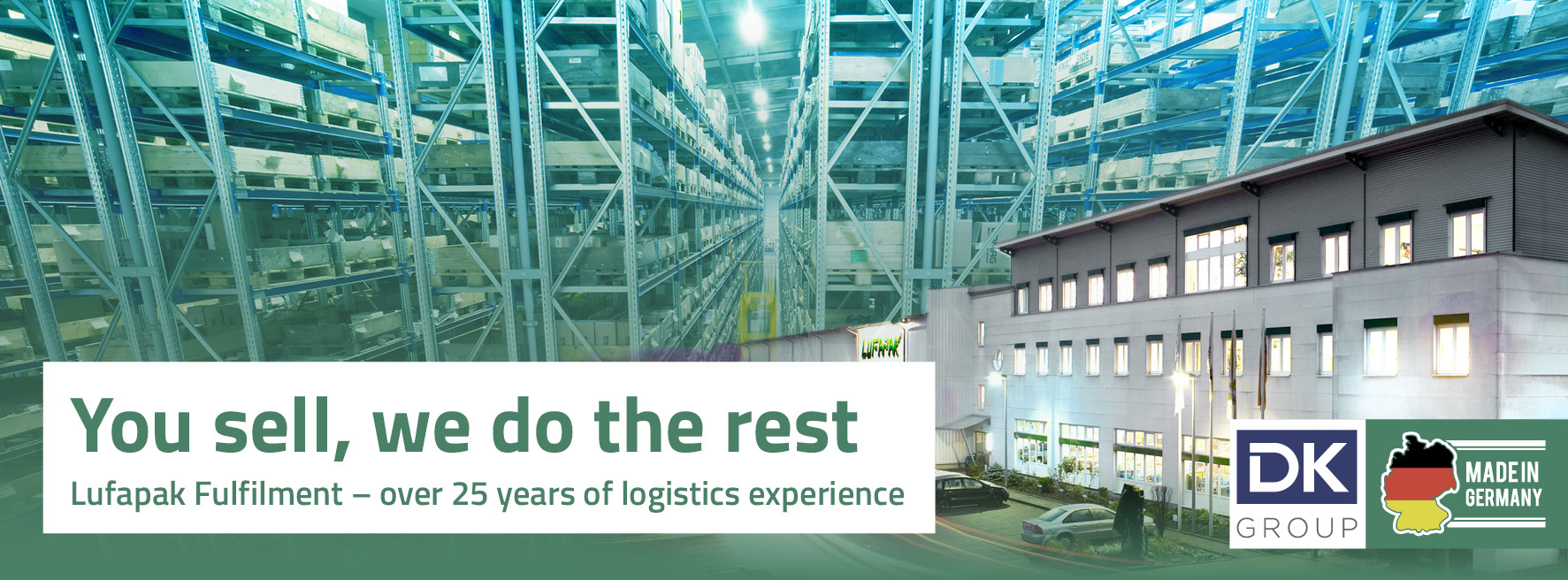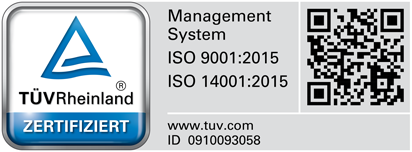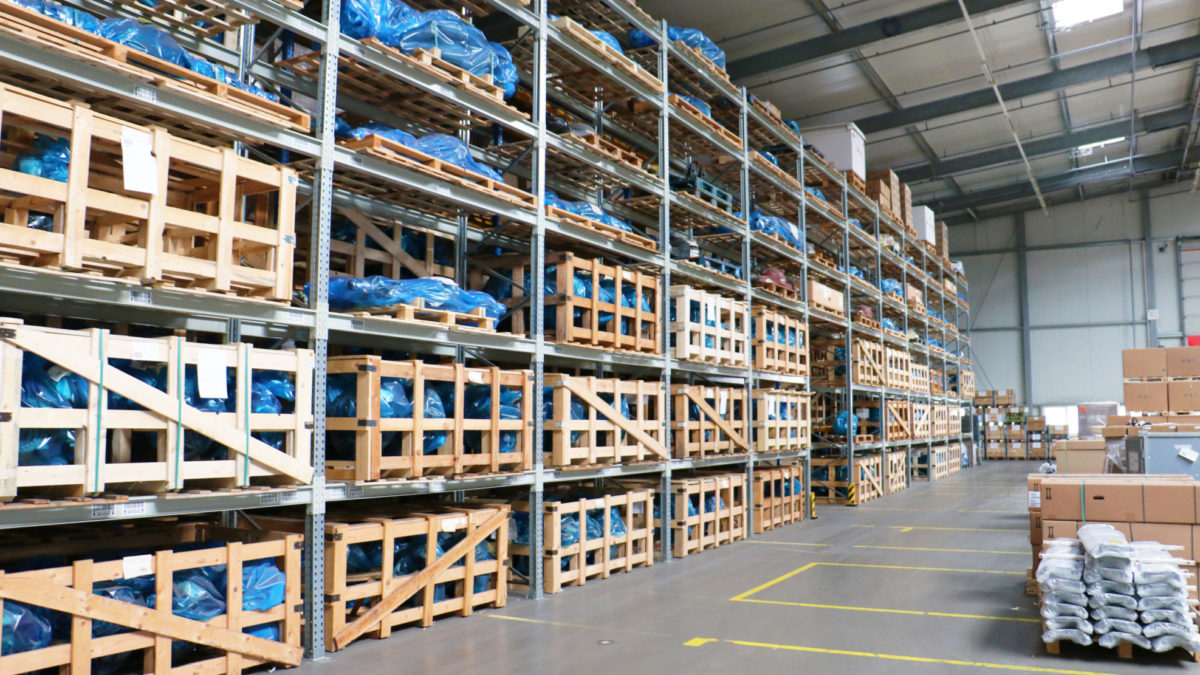sales@lufapak.de +49 2631/384-0 Contactform
Procurement logistics – the centrepiece of successful supply chains
Procurement logistics, a central component of the entire supply chain, plays a decisive role in the success of companies in various industries. It encompasses all processes associated with the purchase and delivery of materials and goods – from the initial order to arrival at a production or storage site. Its importance cannot just be reduced to ensuring the timely supply of necessary materials; it also has a significant influence on the cost structure, production efficiency and ultimately customer satisfaction.
In a world where markets are increasingly networked and expectations of speed and flexibility are constantly rising, a company’s ability to manage its procurement logistics effectively can represent a significant competitive advantage. Optimising these logistics processes not only helps to reduce costs and increase productivity, but also enables companies to respond quickly to changes in demand or disruptions in the supply chain. Given these factors, it is clear that procurement logistics is much more than a support function; it is a critical success factor that can make the difference between success and failure in today’s business environment.
Tasks of procurement logistics
Procurement logistics comprises a number of crucial tasks that are essential for the smooth running and success of a company. These tasks ensure that materials and goods are procured efficiently, cost-effectively and on time to fulfil production requirements and ensure customer satisfaction.
Requirements analysis and planning
The basis of efficient procurement logistics is precise demand analysis and planning. Companies must be able to predict exactly which materials are needed, in what quantity and at what time. This requires close co-operation with production planning and the use of advanced forecasting tools and techniques. Accurate demand planning helps to avoid overstocking, minimise storage costs and prevent bottlenecks in production.
Supplier selection and management
Another critical area of procurement logistics is the careful selection and management of suppliers. Companies need to find suppliers who can not only deliver high quality materials and goods, but who are also reliable, flexible and cost-conscious. The evaluation and selection of suppliers involves assessing their financial stability, production capacity, technological expertise and ability to meet quality standards. Effective supplier management includes regular performance evaluations, developing partnerships and working on continuous improvement processes.

Transport and warehouse management
Optimising the transport and storage of raw materials and components is another key function of procurement logistics. This includes selecting suitable modes of transport, planning efficient delivery routes and ensuring fast and safe delivery. Equally important is efficient warehouse management, which enables materials to be removed and made available quickly, optimises stock management and reduces storage costs. Modern warehouse management systems (WMS) and technologies such as automated warehouse solutions and RFID tracking are playing an increasingly important role here.
Integration of procurement logistics, production logistics and distribution logistics
The integration of procurement logistics, production logistics and distribution logistics is crucial for creating an efficient and responsive supply chain. These three logistics areas are closely linked and each plays a specific role in the overall process of creating value and delivering products to the end customer.
From supplier to manufacturer: the role of procurement logistics
Procurement logistics is the first link in the supply chain and deals with the timely and quality-assured procurement of raw materials and components required for production. It acts as a link between the suppliers and the company’s production facility. Effective procurement logistics ensures that materials are available in the right quantity, at the right time and at competitive prices in order to guarantee a continuous production flow and avoid delays or production downtime.
Integration of procurement logistics and production logistics
Seamless integration between procurement and production logistics is crucial for the efficiency of the entire supply chain. Production logistics takes over the materials from procurement logistics and plans, controls and monitors all internal processes required to convert these materials into finished products. This includes everything from production planning and control to the storage of intermediate products and the organisation of internal transport. Close coordination between procurement and production logistics enables companies to respond flexibly to changes in demand and maximise production efficiency.
From the manufacturer to the customer: The interface to distribution logistics
Once the products have been manufactured, distribution logistics comes into play. It is responsible for storing the finished products and distributing them to the end customer or retailer. Distribution logistics must work closely with procurement and production logistics to ensure efficient order processing, optimised warehousing and fast shipping. Well-organised distribution logistics contribute significantly to customer satisfaction by ensuring that products are delivered on time and in perfect condition.
Procurement logistics in the automotive industry
Procurement logistics in the automotive industry faces unique challenges and requires specialised strategies to ensure efficiency and flexibility. The automotive industry is known for its complex supply chain and the high number of components required to manufacture a vehicle. A car consists of around 10,000 parts that need to be sourced from different suppliers, making procurement logistics a critical factor in the success of an automotive manufacturer.
Challenges in procurement logistics in the automotive industry
The main challenges in automotive procurement logistics are ensuring the timely delivery of parts in the right quality and quantity, coordinating a large number of suppliers and minimising inventory costs. In addition, the trend towards globalisation is pushing companies to diversify their supply chains while managing the risks associated with sourcing from offshoring locations. A study shows that automotive companies expect sourcing from offshoring locations to decline by a further 19 percent by 2025, underlining the need to optimise local and regional supply chains.
Milkrun concept for optimising procurement logistics
One effective method for overcoming these challenges is the milk run concept. This approach aims to improve the efficiency of transport and logistics through regular, optimised routes where a single means of transport travels to multiple suppliers in a set sequence to collect materials before returning to the manufacturer. Milkrun planning requires a deep understanding of procurement logistics and close integration of inventory management and route planning to minimise empty runs and optimise delivery frequency.
Strategies for efficiency and flexibility
To maximise the efficiency of procurement processes while maintaining flexibility, automotive manufacturers rely on various strategies. These include just-in-time (JiT) deliveries, which aim to reduce inventory costs and increase production efficiency by delivering materials exactly when they are needed for production. Another approach is Supplier Relationship Management (SRM), which promotes collaboration and communication with suppliers to improve supply chain reliability and jointly respond to challenges.
Procurement logistics in the automotive industry is therefore at the centre of a complex and dynamic supply chain. By utilising strategies such as the milk run concept, JiT deliveries and effective SRM, automotive manufacturers can overcome challenges, increase the efficiency of their procurement processes and maintain a high level of flexibility in their supply chain.
Processes in procurement logistics
Procurement logistics plays a crucial role in the success of companies, especially in the automotive industry, which depends on the smooth and efficient procurement of parts and materials. A detailed examination of the key processes within procurement logistics provides valuable insights into order fulfilment and quality control, two essential aspects that contribute to optimising procurement goals.
Order fulfilment and procurement
The order fulfilment and procurement process typically begins with the purchase requisition, which signals the need for goods or services within an organisation. Once the requisition has been approved, the selection of the supplier follows, based on factors such as price, quality and delivery capability. The order is then placed and the supplier delivers the requested materials or services. Efficient order fulfilment requires a structured system that covers all steps from requisition to delivery and payment.
Quality control and assurance
Quality control and assurance are critical to ensure that all procured materials and parts meet the established standards and specifications. This process involves various methods and procedures, including inspections, tests and audits, which are carried out to assess the quality of incoming goods. Effective quality control not only helps to identify and correct defects and deficiencies, but also helps to minimise the risk of production downtime and costly recalls.
Strategies for optimising procurement logistics
Companies can pursue various strategies to improve the efficiency and effectiveness of procurement logistics:
- Automation of procurement processes: By implementing automated procure-to-pay systems, companies can increase efficiency, reduce errors and increase transparency across the entire procurement process.
- Supplier management: Close collaboration and communication with suppliers can help improve supply chain reliability and respond to challenges together.
- Inventory optimisation: By reducing stock levels and implementing just-in-time delivery, companies can reduce their inventory costs while increasing the flexibility and responsiveness of the supply chain.
Objectives of procurement logistics
Procurement logistics is a central aspect of supply chain management that focuses on optimising processes for the procurement of goods and services. This area has a direct impact on the profitability, efficiency and sustainability of a company. Based on information from various sources such as BWL-Lexikon, Mind-Logistik, Qtrado-Logistics, BVL, TIMOCOM Transportlexikon, Time-Matters and ProLogistik, the primary objectives of procurement logistics can be divided into three main categories: Cost reduction, risk management and supply chain improvement.
Reducing costs and increasing efficiency
One of the main objectives of procurement logistics is to reduce the costs associated with the purchase and procurement of materials and services. This includes not only the direct costs of purchased goods, but also the indirect costs associated with storage, transport and administration. Strategies to control costs and increase efficiency include optimising purchasing processes, reducing stock levels through just-in-time deliveries and automating procurement processes. These measures help to reduce overall costs and increase efficiency within the supply chain.
Risk management and sustainability
Another important objective of procurement logistics is to minimise the risks associated with the procurement and transport of materials. Risk management strategies include the evaluation and selection of reliable suppliers, the diversification of supply sources and the implementation of contingency plans in the event of disruptions in the supply chain. In addition, the promotion of sustainable practices is playing an increasingly important role. Companies are endeavouring to integrate environmental and social standards into their procurement processes, for example by choosing environmentally friendly materials or working with suppliers that guarantee fair working conditions.
Improving the supply chain
Optimising the supply chain is an overarching goal that can be achieved through effective procurement logistics. By ensuring a smooth supply of high-quality materials and services, procurement logistics supports the production and distribution of products. Improving the supply chain includes increasing flexibility and adaptability to market changes, ensuring a high level of supply security and increasing customer satisfaction by providing high-quality products.
The future of procurement logistics
The future of procurement logistics will be significantly characterised by technological innovation, the pursuit of sustainability and adaptation to changing global market conditions. The integration of advanced technologies such as artificial intelligence (AI), the Internet of Things (IoT), blockchain and advanced analytics into procurement processes will enable companies to further increase their efficiency, reduce costs and increase transparency within the supply chain.
Technological innovations
Artificial intelligence and machine learning are increasingly being used to improve forecasting models, predict demand more accurately and optimise inventory management. This leads to a reduction in overstocking and out-of-stock situations, which in turn reduces costs and increases customer satisfaction.
The Internet of Things (IoT) enables improved real-time monitoring and control of the supply chain. By connecting devices, companies can monitor the condition of their goods in transit, helping to minimise risk and control quality.
Blockchain technology offers the opportunity to document transactions within the supply chain securely and transparently. This can help to combat counterfeiting, improve the traceability of products and simplify contractual processes.
Sustainability and ethical procurement
Sustainability will remain a key issue. Companies are increasingly being asked to improve their environmental footprint and assume social responsibility. This includes using environmentally friendly materials, reducing CO2 emissions in the supply chain and ensuring fair working conditions at suppliers. Ethical procurement and circular economy concepts are becoming increasingly important.
Adapting to global market conditions
Globalisation and the associated challenges such as trade conflicts, pandemic-related disruptions or local legislation require a flexible and adaptive procurement strategy. Companies must be able to react quickly to changes, diversify supply chains and build resilient procurement networks.
Overall, procurement logistics faces an exciting future in which technological advances, the pursuit of sustainability and the need to respond to a dynamic global environment will play a central role. Companies that recognise these trends and integrate them into their procurement strategies will be well positioned to gain competitive advantage, minimise risk and ensure long-term success.
Contact us now and get advice


